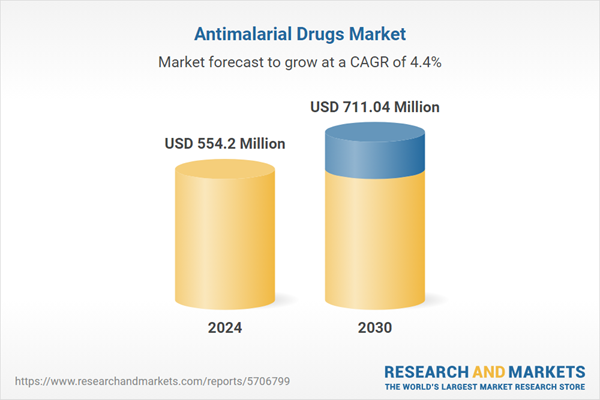Speak directly to the analyst to clarify any post sales queries you may have.
10% Free customizationThis report comes with 10% free customization, enabling you to add data that meets your specific business needs.
Key Market Drivers
Growth in Healthcare Industry
The sustained expansion of the global healthcare industry - projected to surpass USD 4 trillion annually - is significantly bolstering the antimalarial drugs market. Pharmaceuticals and biotechnology contribute nearly USD 850 billion, supported by diagnostics and medical technology. In malaria-endemic regions such as Africa, Asia, and Latin America, increased public and private investment in healthcare infrastructure has enhanced access to diagnostics and treatments. This improved accessibility enables timely intervention, allowing for broader administration of antimalarial drugs and supporting continuous market growth.Key Market Challenges
Inconsistency in Drug Supply
Supply inconsistency remains a major hurdle in the global antimalarial drugs market, especially in regions where malaria is most prevalent. Despite advancements in drug development and distribution frameworks, many affected areas still experience irregular access to essential medications. This issue is most acute in remote or low-income regions with fragile healthcare infrastructure. Key contributing factors include limited manufacturing capacity, inefficient procurement systems, and logistical obstacles that lead to delayed or insufficient supply. Seasonal fluctuations in malaria cases - often linked to monsoon or rainy seasons - further strain these underprepared supply chains. Inadequate inventory control and fragmented distribution networks can result in stockouts at critical points of care, ultimately disrupting treatment and increasing health risks.Key Market Trends
Increased Focus on Herbal and Plant-Based Therapies
There is a growing trend toward the development and adoption of herbal and plant-based therapies in the antimalarial drugs market. Plant-derived compounds such as quinine, quinidine, and artemisinin remain pivotal in the fight against malaria. This shift is largely influenced by rising interest in natural and traditional treatments, particularly in regions where indigenous medicine is widely practiced. Concerns regarding side effects of synthetic drugs and the emergence of resistant malaria strains have prompted researchers and pharmaceutical firms to explore botanical alternatives. Artemisinin - extracted from sweet wormwood - serves as a cornerstone of ACTs and exemplifies the clinical success of plant-based remedies. Ongoing exploration of other medicinal plants, including neem and cinchona bark, continues to expand the pipeline of potential antimalarial agents derived from natural sources.Key Market Players
- Cipla Ltd
- GlaxoSmithKline Plc
- Ipca Laboratories Ltd.
- Merck & Co., Inc
- Novartis AG
- Zydus Cadila
- Sun Pharmaceutical Industries Ltd.
- Strides Pharma Science Limited
- Glenmark Pharmaceuticals Ltd.
- Lincoln Pharmaceuticals Ltd.
Report Scope
In this report, the Global Antimalarial Drugs Market has been segmented into the following categories, in addition to the industry trends which have also been detailed below:Antimalarial Drugs Market, By Drug Type:
- Quinine
- Chloroquine
- Proguanil
- Amodiaquine
- Mefloquine
- Hydroxychloroquine
- Pyrimethamine
- Others
Antimalarial Drugs Market, By Malaria Type:
- Plasmodium Falciparum
- Plasmodium Malariae
- Plasmodium Vivax
- Plasmodium Ovale
- Plasmodium Knowlesi
Antimalarial Drugs Market, By Region:
- North America
- United States
- Canada
- Mexico
- Europe
- France
- United Kingdom
- Italy
- Germany
- Spain
- Asia Pacific
- China
- India
- Japan
- Australia
- South Korea
- South America
- Brazil
- Argentina
- Colombia
- Middle East & Africa
- South Africa
- Saudi Arabia
- UAE
Competitive Landscape
Company Profiles: Detailed analysis of the major companies present in the Global Antimalarial Drugs Market.Available Customizations
With the given market data, the publisher offers customizations according to a company's specific needs. The following customization options are available for the report.Company Information
- Detailed analysis and profiling of additional market players (up to five).
This product will be delivered within 1-3 business days.
Table of Contents
Companies Mentioned
- Cipla Ltd
- GlaxoSmithKline Plc
- Ipca Laboratories Ltd.
- Merck & Co., Inc
- Novartis AG
- Zydus Cadila
- Sun Pharmaceutical Industries Ltd.
- Strides Pharma Science Limited
- Glenmark Pharmaceuticals Ltd.
- Lincoln Pharmaceuticals Ltd.
Table Information
| Report Attribute | Details |
|---|---|
| No. of Pages | 185 |
| Published | June 2025 |
| Forecast Period | 2024 - 2030 |
| Estimated Market Value ( USD | $ 554.2 Million |
| Forecasted Market Value ( USD | $ 711.04 Million |
| Compound Annual Growth Rate | 4.4% |
| Regions Covered | Global |
| No. of Companies Mentioned | 10 |









